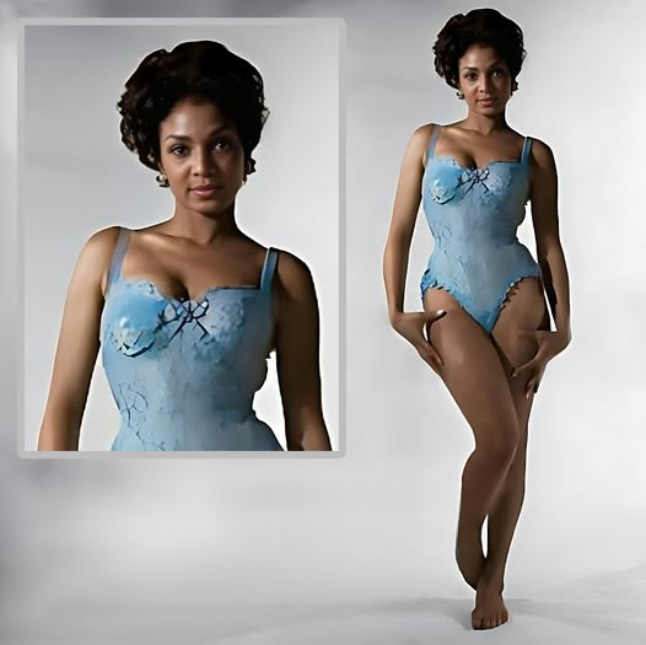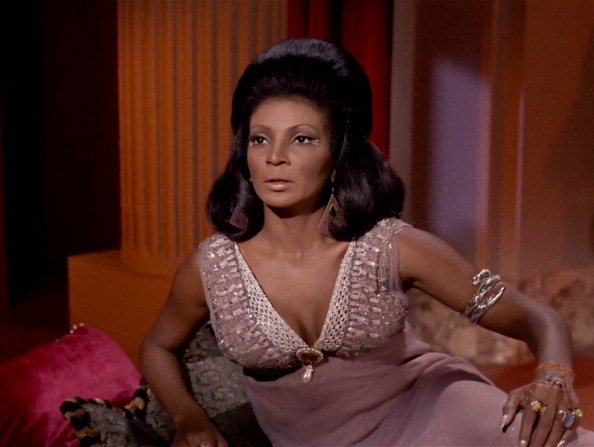Nichelle Nichols, a pioneering actress, singer, and advocate, remains an iconic figure in American pop culture history. Best known for her groundbreaking role as Lieutenant Nyota Uhura on the original Star Trek television series (1966–1969), Nichols broke racial and gender barriers on-screen during a turbulent era of civil rights change in the United States. Her portrayal of Uhura, a capable and respected communications officer aboard the USS Enterprise, was one of the first times a Black woman was seen in a position of authority on American television.

A Role That Changed Television
At a time when Black actors were often relegated to stereotypical roles, Nichols’ Uhura stood out as intelligent, calm under pressure, and essential to the success of the crew. Her presence on the bridge of the Enterprise was revolutionary. The significance of her role was not lost on viewers—particularly young Black Americans who, for the first time, saw someone who looked like them portrayed with dignity, professionalism, and power.
One of the most defining moments in Nichols’ career was the support she received from Dr. Martin Luther King Jr. himself. When she considered leaving Star Trek after its first season to return to musical theater, Dr. King persuaded her to stay, stressing the importance of her role as a symbol of hope and representation for the Black community. He called her “one of the only African American figures in the future.”

Breaking More Barriers
In 1968, Nichols and co-star William Shatner made history by performing one of American television’s first interracial kisses. The moment was both controversial and influential, pushing boundaries and opening doors for greater representation and diversity in the media.
Following her work on Star Trek, Nichols turned her focus to space in a new way—helping others reach it. In the late 1970s, she collaborated with NASA on a campaign to recruit women and minorities into the astronaut program. Her advocacy helped bring aboard notable astronauts such as Dr. Sally Ride, the first American woman in space, and Colonel Guion Bluford, the first African American astronaut in space.

A Multifaceted Talent
Before her acting career, Nichols was a gifted singer and dancer who toured with jazz legend Duke Ellington and worked in musical theater. She continued to perform and record music throughout her life, releasing several albums.
Even after Star Trek ended, Nichols reprised her role as Uhura in multiple Star Trek feature films from the late 1970s through the early 1990s, further solidifying her legacy as a fan favorite and cultural icon.

Later Life and Legacy
In her later years, Nichols continued to appear at conventions and fan events, always engaging with admirers who credited her for inspiring them to pursue careers in science, space, or entertainment. She also remained a staunch advocate for inclusion and diversity in media and STEM fields.
Nichelle Nichols passed away in 2022 at the age of 89, leaving behind a profound legacy. Tributes poured in from NASA, Hollywood, and fans worldwide. Her contribution to television and space exploration is remembered as both visionary and vital.
Through her talent, courage, and determination, Nichelle Nichols helped change how the world sees not just science fiction, but the future itself.

Did You Know?
-
Uhura’s name means “freedom” in Swahili.
-
Nichols was the first African American woman to have her handprints immortalized at the TCL Chinese Theatre in Hollywood.
-
Her influence helped NASA diversify its astronaut corps in the 1980s.